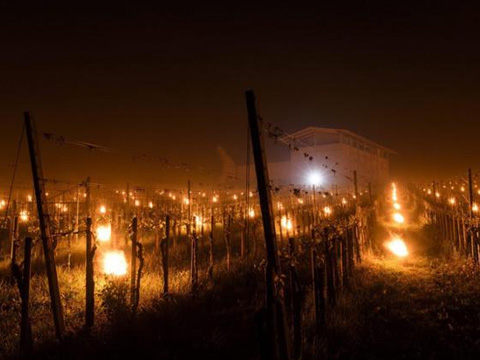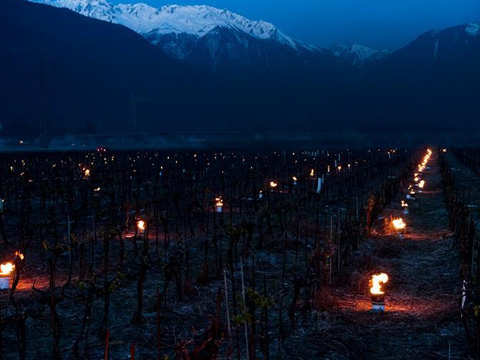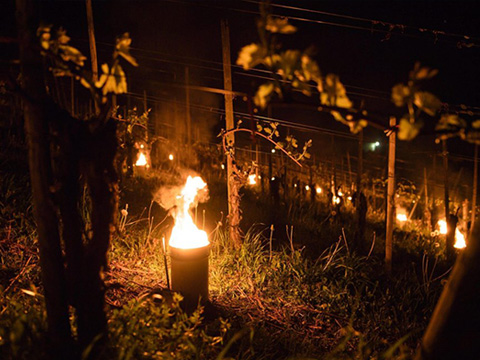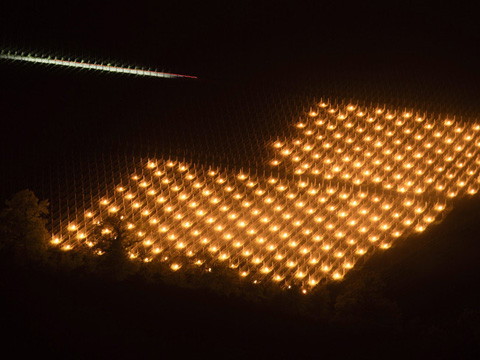How to prevent the late spring cold for vineyard trees?
Late spring cold refers to the persistent low temperature weather that occurs when the temperature rises in spring and encounters the invasion of stronger cold air. Generally, over-season in winter and spring, the temperature gradually rises, but in some years, the end of winter is warmer. After spring, the temperature often falls sharply because of the strong cold air attack, which is lower than the annual average. This kind of warm and cold weather is called late spring cold, which often occurs. Once it occurs, it will endanger agricultural production, especially cherries, apricots, peaches, plums and plums which blossom earlier in spring.
The reasons for the formation of late spring cold are not complicated. It is the transitional period from winter monsoon to summer monsoon in spring (March to April) in China. During this period, intermittent cold air from the northwest often invades. The cold air goes southward and keeps pace with the warm and wet air in the south, forming a continuous low temperature weather. Generally speaking, when the average temperature in ten days is lower than 2 degrees centigrade in the whole year, there will be more serious cold in late spring. The later the cold air goes south, the stronger the cooling range, the wider the cooling range, and the greater the possibility of late spring cold. In fact, there are usually two reasons for orchard frost damage caused by late spring cold, one is frost, the other is cold current.
Frost refers to the low temperature on the ground and plant surface during the growing season, which can cause cell wall injury or death. It occurs under the weather conditions that can cause significant cooling. The meteorological conditions for frost formation are mostly clear and windless nights, and sunny nights are conducive to rapid radiation cooling of the ground or ground objects. Most of the nights before frost are sunny and cloudless at night. The surface radiation transfers heat to the upper atmosphere. The inverse radiation of the atmosphere is weak, and the surface heat is less. The surface temperature decreases greatly, so the temperature before frost is lower. Frost usually occurs between 2 and 3 a.m.
2. Cold currents refer to Arctic, Siberia and other places, because the sun shines obliquely all year round, the heat on the ground is very little; especially in winter and spring, the night is long, the surface temperature is very low, and there are ice and snow everywhere. In the Arctic, the average daily temperature in winter and spring can often reach minus 40 degrees. When opportunity arises, it strikes at places with lower atmospheric pressure, just as water flows downward. This is what people often call cold currents. Frost or cold currents harm plants mainly because low temperature promotes the formation of ice crystals in the intercellular space of plants, and continues to capture water in cells. Ice crystals gradually expand, which not only consumes water in cells, but also causes protoplast dehydration to deteriorate protoplast colloids. So that cell dehydration causes harm. The intensity and duration of freezing injury are closely related to topography, soil, vegetation, management technology, preventive measures and plant condition. The north slope of the hill is windward, less sunshine and heavier frost; the south slope is windward and sunny, and the frost is light. The cold air of hilly slopes can flow downhill with lighter frost; the cold air of trenches and low-lying areas accumulates, and the frost is heavier.
Against frost candle has super anti-freezing and slow-freezing effect. Protecting flowers and fruits, strengthening pollination, can reduce buds and stamens dysplasia caused by low temperature, late spring cold and frost, no flowering, no pollen, no fruit, falling flowers, leaves, fruit and other phenomena, and promote the vigorous growth of plants. This method not only has good effect in apricot orchard, but also has remarkable anti-freezing effect in peaches, walnuts, cherries, persimmons, pears and apples.
We receive enquiries in English, Español (Spanish), Русский язык (Russian), Français (French) and العربية (Arabic). Our professional team will reply to you within one business day. Please feel FREE to contact us!

.jpg)




